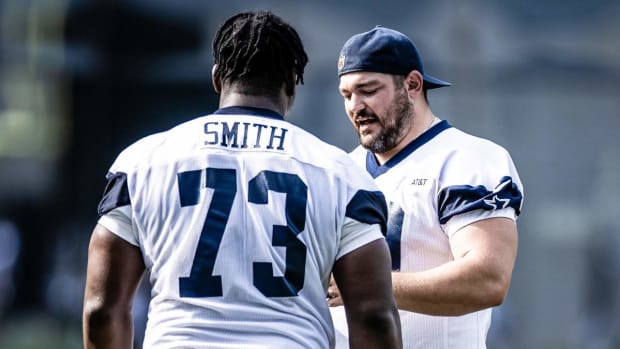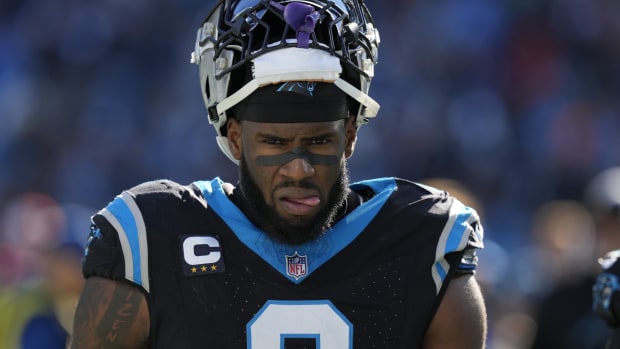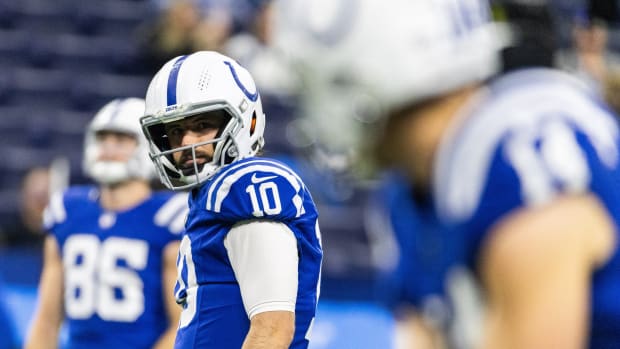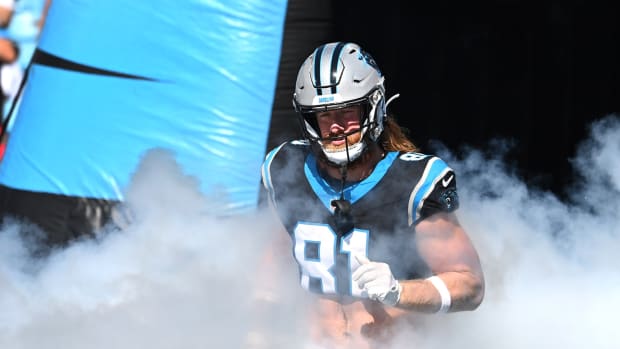Baker Mayfield Critics Are Neglecting Cleveland’s History
If you’re the kind of person who already has a cemented belief structure on Baker Mayfield, the following 800 words are going to read like a list of excuses, ones that will be especially hard to read after Mayfield threw four interceptions in a narrow loss to the Packers that would have dramatically shifted Cleveland’s playoff outlook. As of now, according to FiveThirtyEight, they’re looking at about a 10% shot.
The problem is that people who are evaluating Mayfield’s future beyond this moment do not have a cemented belief structure on Mayfield, and will use more than just this injury riddled season to determine his ultimate value. As they should. The other problem is that people who hold tight their negative view of Mayfield have a completely distorted sense of history; where the Browns are now and where they were just a few short years ago.
In the 47 games prior to Mayfield injuring his shoulder against the Houston Texans—the moment a somewhat pronounced decline began—he completed nearly 63% of his passes, a nearly 2:1 touchdown to interception ratio and has thrown for almost 12,000 yards. His yards per attempt average over that time would be top 15. He is still in the top 10 in terms of yards per attempt this year. And, many of those games included either Hue Jackson or Freddie Kitchens as the primary playcaller. That’s more touchdowns and yards than Russell Wilson over the same time frame, with a slightly lower quarterback rating.
On Saturday against the Packers, the game-ending interception was on a timing route where his receiver’s jersey was being tugged like an untrained pitbull. Any reasonable person looking at what Mayfield could accomplish over the long term is going to juxtapose the awkwardness and obvious discomfort we’ve seen over the last few weeks with the relative fluidity and precision of games like Kansas City at the beginning of the season. There is a reason one of the smartest front offices in the NFL have consistently started a battered Mayfield over a capable Case Keenum, who had the Vikings within an earshot of the Super Bowl a few years ago.
Leading up to this point, Mayfield has managed to lug with him the collective baggage of one of the NFL’s most historically bungled franchises. His arrival was supposed to signal a turn toward pragmatism and sound decision making, but ended up being another lean into complicated politicking, backward roster management and an in-season coach firing. He played well enough to keep the Browns from being a total laughingstock in 2019, despite a Madden 2004 offense and in his first season with a capable coaching staff and unified front office, led the Browns to their first playoff win in decades.
The person we believed Mayfield to be coming out of college, one who wasn’t afraid to speak his mind or challenge his detractors, attached him to outsized expectations. Mayfield was not only going to fix the Browns, he was going to grant them an identity and hoist them into consistent competence, despite the fact that no quarterback had managed to do so over the previous two decades; despite the fact that the Browns play in one of the two best divisions in football and routinely face two of the best-coached defenses in the NFL.
That expedited his honeymoon period in Cleveland and shortened the window of time for which we could appreciate the fact that the Browns had a quarterback who lasted more than a handful of games—and prevented us from seeing that tired clip of the fan wearing the taped jersey with all the franchise’s prior starters listed on it. Mayfield was not always perfect, not always efficient, not always ideally accurate or perfectly suited for whatever offense he was playing in, but he was always, at the very least, adequate. He could still put the Browns in a position to win after three horrendous interceptions on Saturday against the Packers. His greatest gift to the city of Cleveland may be the fact that, when trailing by more than one score, you could entertain the idea of keeping the television on.
So it’s difficult to rationalize the criticism. We are criticizing Mayfield, the player we all hoped he’d be, based off a sterling collegiate career in a Lincoln Riley offense that produced three current starting NFL quarterbacks. The player whose identity as we understand it is a media creation based off some moments of brashness and rare glimpses of non-milquetoast behavior. We’re not criticizing the Mayfield who has been pretty okay as a Browns quarterback; the person who has played hurt, handled with some maddening, Browns-ian palace intrigue storylines and won a playoff game last year.
That guy is going to play some bad games but, minus the acquisition of Aaron Rodgers on the open market, is better than the other alternatives. That is something we seem to forget.
More NFL Coverage:
• MMQB Staff Week 16 Picks
• A Look at the Holiday Gifts NFL Players Give and Get
• What Would a Trade Package for Aaron Rodgers Look Like?
• How Jakob Johnson Is Helping Define the Post–Tom Brady Patriots





































